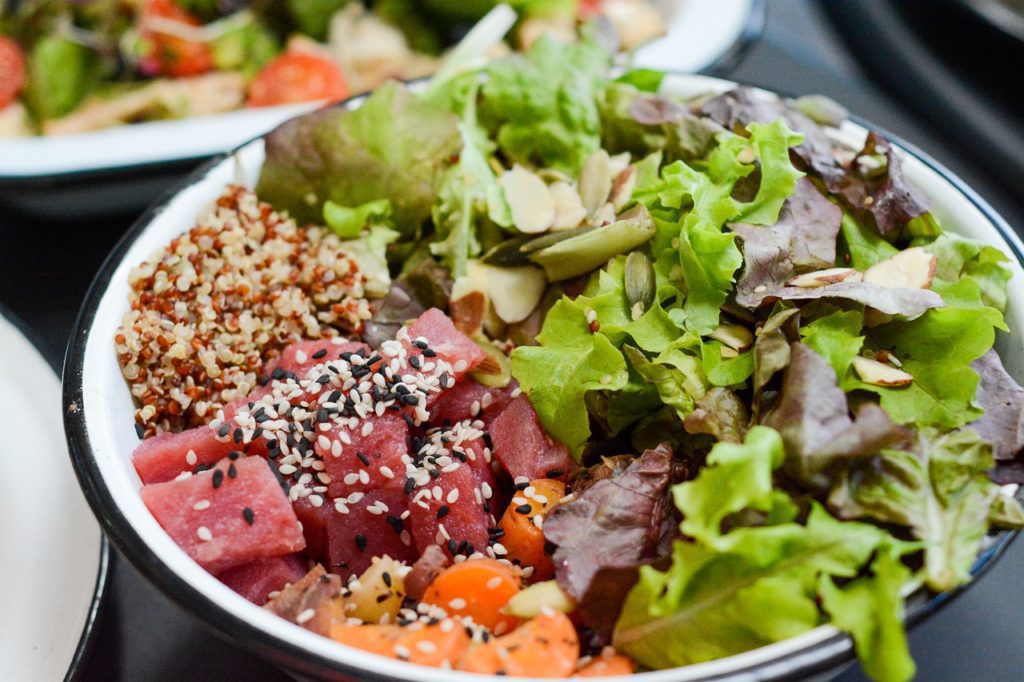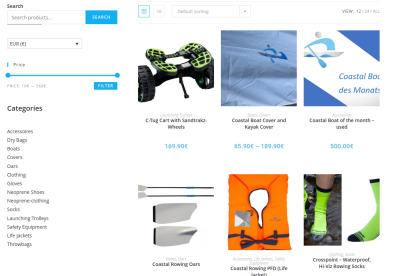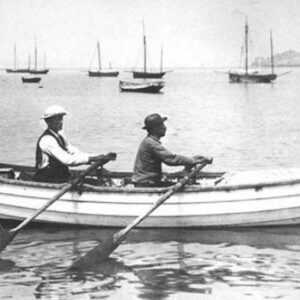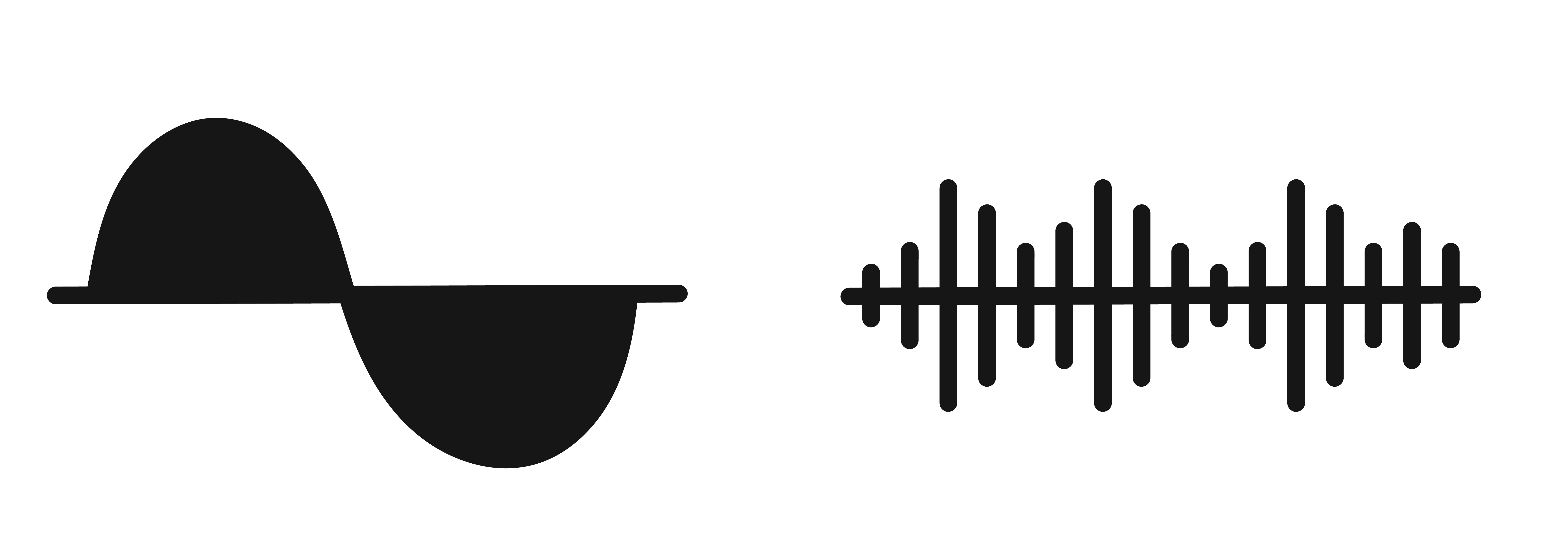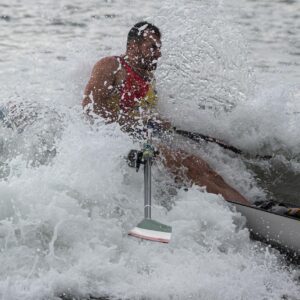Have you ever wondered, how many calories top athletes consume on a daily basis? Some time ago we had the opportunity to watch the training at the Leander Club in England. Leander is one of the rowing clubs in which future world champions are trained. We were not only able to look at the training but also at the meal plan and times. So how many calories does a top-level rower need?
Rowers’ Diet: The proper amount of calories
Estimated energy requirements for rowers who exercise several times a day:
- Male heavyweight: 5500-6000kcal
- Female heavyweight: 4000-4500kcal
- Male lightweight: 4000-4500kcal
- Female lightweight: 3000-3500kcal
These are typical energy requirements for rowers on an international level. Club rowers require a reduced calorie intake, depending on their specific training plan.
Here is an example of a 6,000 kcal meal plan (heavyweight men’s workout = 3+ hours per day).
Important (!): Please do not copy this plan if you are not training in similar intensity!
7 AM BREAKFAST
- A large bowl of muesli
- 1/2 litre skimmed milk
- 1 thick slice of whole-grain bread with olive oil / or sunflower seeds and honey / or jam
- 1 glass of fruit juice
8 AM TRAINING
- 1 litre of a sports drink
9.45 AM SECOND BREAKFAST (after the workout)
- 1-2 poached eggs
- 1/2 can of baked beans
- A serving of mushrooms and tomatoes
- 3 thick slices of whole-grain bread with olive oil
- 500ml fruit puree
1 PM LUNCH
- A large portion of spaghetti bolognese with grated cheese, plus a salad with tomatoes and corn
- 3 raisin pancakes plus 1 rice pudding
- Fruit and 500ml fruit puree
4 PM TRAINING
- 1 Litre of water or sports drink during the session
5:30 PM SNACK AFTER THE TRAINING
- Muesli with 1/2 litre of skimmed milk and sugar or 4 slices of toast with olive oil / or sunflower seeds and jam / or peanut butter plus a banana
- 500ml fruit puree
7:30 PM DINNER
- Grilled salmon
- 6-7 boiled potatoes plus 2 bagels, broccoli and carrots
- Fruit mix/crumble and custard
- 750ml water/fruit puree
9:30 PM SNACK BEFORE BEDTIME
- A bowl with muesli and milk
Information from “Nutrition for High Performance Rowing” – Presentation of Wendy Martinson OBE (Leading Nutritionist, Team GB)
What’s the deal with dietary supplements?
The goal of dietary supplements is to provide the body with nutrients that are only inadequately consumed or not consumed at all during a regular diet. We all know the huge shelf with dietary supplements in every drugstore. But many people take nutritional supplements without looking at their diet and without really knowing if they have a deficiency.
And actually: with a balanced diet, food supplements are not really necessary! Unless you have health problems, but then you should use special supplements anyway, as agreed with your doctor.
Most rowing associations recommend athletes not to take supplements of any sort unless prescribed by a doctor or nutritionist. Statements from the Austrian and English Associations are clear about that.
British Rowing published the following statement: “The position of the GB Rowing Team Medical and Science Committee is that members of the GB Rowing Team and national squads are strongly advised against the arbitrary use of supplements, which is in keeping with the policy of the British Olympic Association.”
The Austrian Rowing Association published in cooperation with the Austrian Olympic Committee a poster with the title “Power up – Best performance through optimal nutrition”. On the poster, they published the following statement about supplements: “Natural nutrition contains everything your body needs to perform at its best. Do not take any risks and don’t take food supplements, as they can be contaminated with prohibited substances, they can be overdosed or simply ineffective.”
We can see here more the fear of the associations that their athletes take (un-) registered supplements that will later appear on the doping list. In general, one can assume that the freely available dietary supplements are simply unnecessary if you usually have a balanced diet. If you want to be sure that your body is adequately supplied with everything, you can simply talk to your GP and have your blood checked. Iron in particular can often be an undiscovered problem.
Be your own nutritionist – How many calories do rowers need?
What we know: For 90 minutes of a strenuous exercise, we need something around 600-800 calories. Of course, that is just an estimated average, but it’s something we can work with.
How many calories does a rower need if he only rows 3 times a week? The next time you plan your exercises, you should also take some time to think about which role your diet can play in your performance. Spend time in your schedule to properly heat up your workout, and bring some snacks for the recovery period afterwards to maximize the benefit of your workouts.
You don’t have to have midnight snacks, count calories, or scientifically validate your diet – but just take a closer look at your eating habits and think about improvements if you discover any problems. Improving your diet can definitely improve your rowing performance.
What are your favourite snacks after a workout? Anything you’d like to share?

